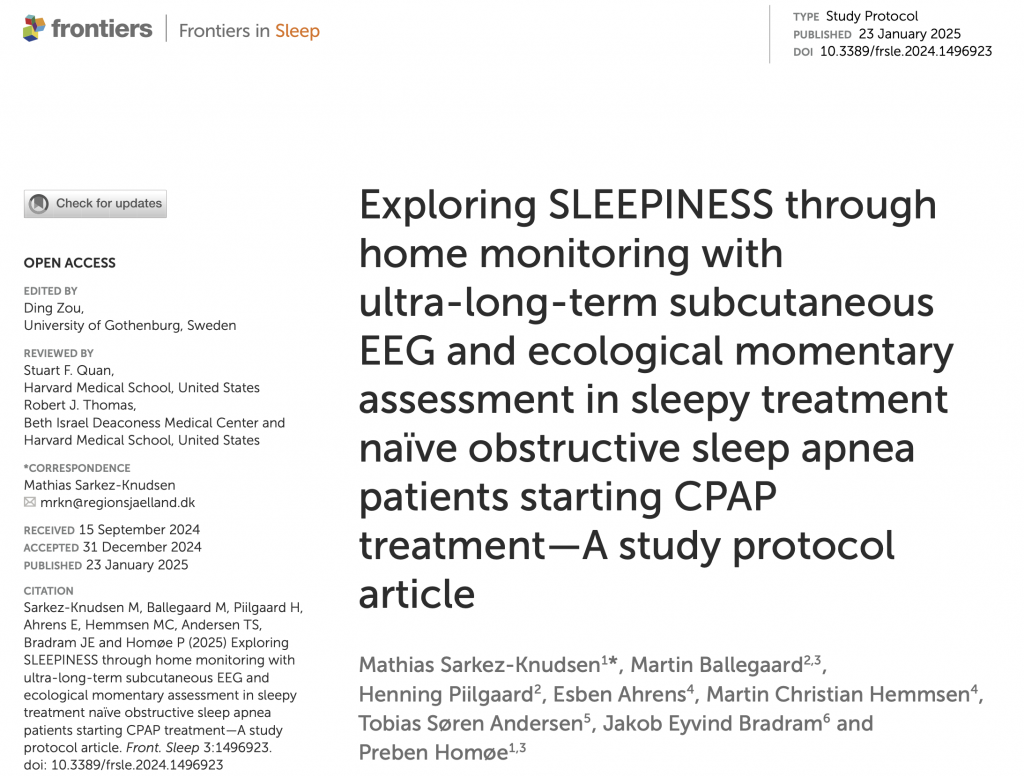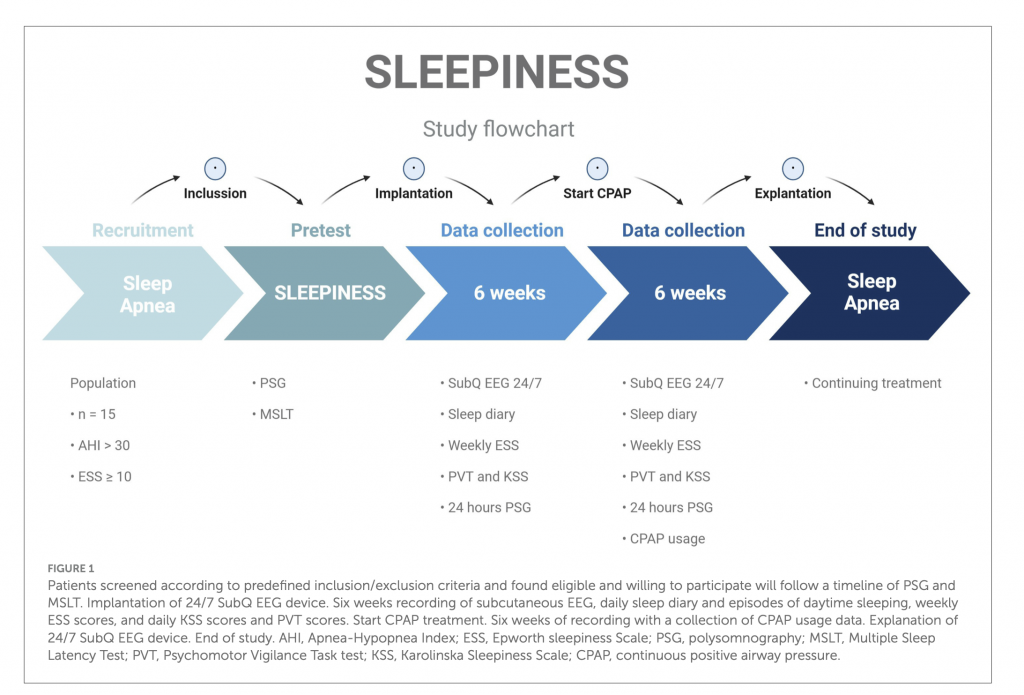
A new protocol article published in Frontiers in Sleep introduces an innovative approach to studying excessive daytime sleepiness (EDS) in patients with untreated severe obstructive sleep apnea (OSA) starting CPAP therapy. The study leverages ultra-long-term subcutaneous EEG recordings together with ecological momentary assessment (EMA) methods to capture sleepiness patterns directly in patients’ everyday lives.
A key part of this pioneering study is the use of the Copenhagen Research Platform (CARP) and the CARP Studies app, which enable detailed EMA and mobile sensing. By using CARP, the researchers can collect patient-reported outcomes and contextual behavioral data continuously and in real time. Participants report subjective sleepiness levels using the Karolinska Sleepiness Scale (KSS), perform reaction-time tests (PVT), and log daily sleep and nap diaries directly on their smartphones.

In addition to these active data points, CARP also collects passive sensing data from participants’ phones, such as GPS location, step counts, detected activities (e.g., walking or biking), screen use, and local weather conditions. This comprehensive dataset helps researchers understand how daily activities and environmental factors influence perceived sleepiness and actual sleep patterns.
The study showcases how CARP’s flexible, GDPR-compliant, open-source framework supports high-quality, real-life sleep and behavior monitoring. It exemplifies the platform’s potential for enabling large-scale, home-based studies that bridge subjective experiences and objective physiological data — a crucial step forward in digital health research.
The national Danish TV channel (DR) has made a documentary on the project as part of the nine o’clock news on Sunday, April 13th, 2025 – in Danish. Click the image below and go to 21:41, where the documentary on sleep apnea and the Sleepiness study starts.
